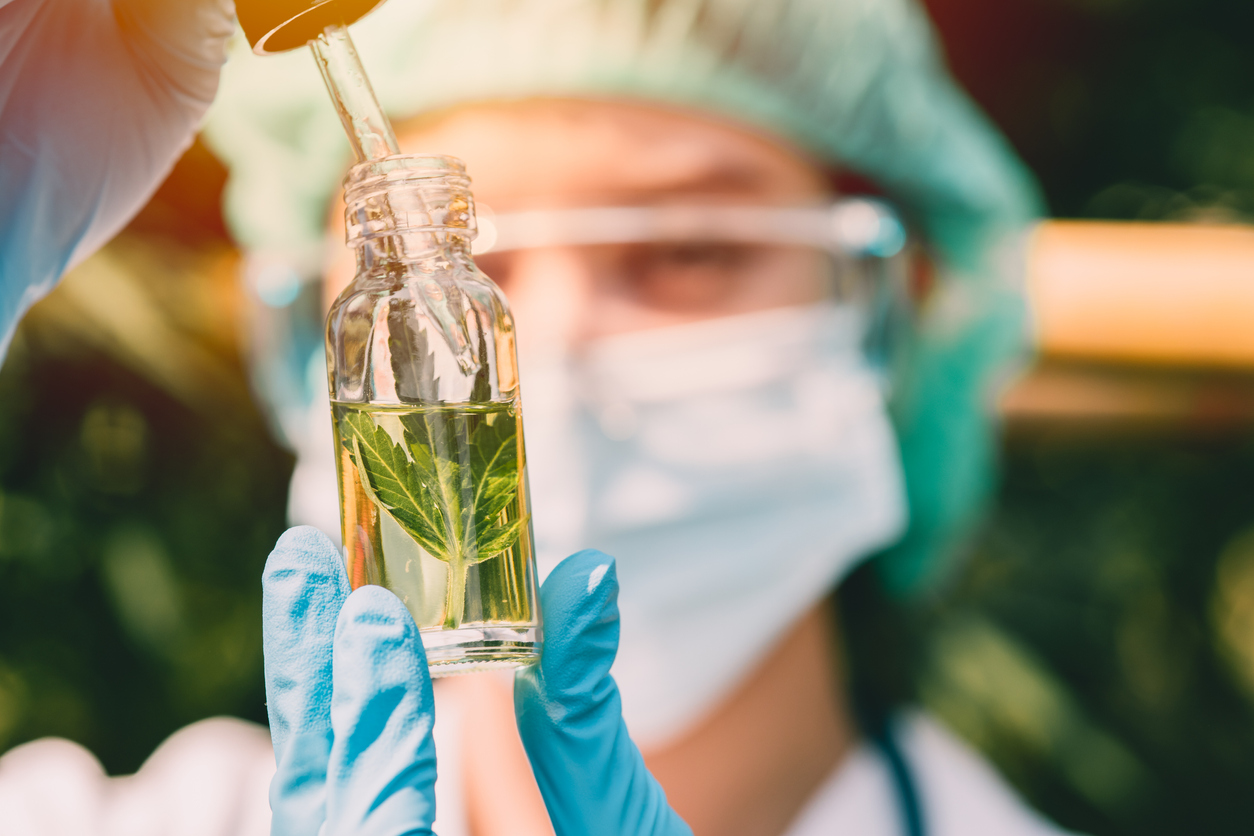Since the use of CBD officially became legal in the UK in 2017, followed by medicinal cannabis in 2018, demand has risen considerably. In the year up until August 2023, over 6 million people in the...
CBD and women’s health
Cannabinoids

Mar 8, 2024 | Published by Cristelle Santos
Cannabinoids, Celebrations
The European CBD Report estimates that in 2022, just under €1.7 billion worth of CBD products were sold in Europe, while Statista reports that in the US, 2022 sales reached $4.17 billion. As CBD increases in popularity, many women are investigating its benefits for period pain, endometriosis, and menopause. Here Cristelle Santos, Consultant Toxicologist at CBD testing and regulatory specialist Broughton, discusses CBD and its uses in women’s health.
CBD has been suggested to have possible benefits for women’s health. There are endocannabinoid receptors throughout the female reproductive tract and the hypothalamus, which is responsible for the stress response and hormone control.
So, how is CBD being used, and what evidence is there to support it?
CBD for period pain
According to Women’s Health Concern, around 80 percent of women experience period pain at some stage in their lifetime. It has been suggested that CBD may help to regulate inflammation and relieve symptoms. There are products available, including CBD tampons, balms, and patches, for women to try, despite the absence of established safety data supporting their usage via these routes of administration. While there is very little scientific research specifically on CBD and period pain, anecdotal reports have shown that some people find it very effective.
CBD for endometriosis
Endometriosis causes pelvic pain, long periods, abdominal cramps, and other symptoms and reportedly affects around 10 percent of women in the UK and 11 percent in the US. Some traditional treatment options can affect fertility or bring undesirable side effects, and some women are turning to cannabis-based products as novel therapeutic options.
One study published in BMC Complementary Medicine and Therapies in 2019 found that women with endometriosis self-rated CBD as the most effective practice for soothing pain, compared with alternative methods. One-third of the women in the study using CBD or hemp oil reported being able to reduce their endometriosis medication by 50 percent or more.
Other than this study, evidence is very limited. In addition, while there are ongoing studies into how CBD tampons and suppositories might help endometriosis, there are no results as of yet.
CBD for menopause symptoms
Diagnosed after 12 months without a period, the average age of menopause in the UK and US is 51. It has been suggested that many menopausal symptoms could be relieved with CBD, such as mood changes, sleep disturbances, and bone density loss.
A study from Rutgers University published in Frontiers in Pharmacology reported that when oestrogen-deficient mice were fed CBD, they showed marked improvement, such as increased bone density and reduced inflammation. Senior author Diana Roopchand, said: “There is much anecdotal evidence of CBD’s health benefits for menopausal and postmenopausal women, but our study is the first to investigate some of the claims in an established preclinical model of post-menopause.”
Bringing new products to market
At the moment, there is limited reliable scientific evidence on the benefits of CBD for women’s health, and further research is needed. Many CBD studies are conducted using small groups over a short period or performed on animals, while the long-term impacts are still largely unknown.
However, with many women anecdotally sharing the success of CBD products, many manufacturers are looking to tap into this growing market. For women’s health purposes, there are many ways that CBD can be delivered, including topically (balms and patches), orally (supplements, pills, food), and internally (tampons and suppositories). However, it is essential to ensure that these products have undergone thorough toxicological risk assessments before use. Always consult your physician before incorporating CBD into your regimen to mitigate potential interactions with other medications and prevent adverse reactions. CBD is regulated differently according to product type. For example, the Food Standards Agency in the UK regulates oils and gummies. For the best chance of regulatory success, manufacturers can work with an experienced partner to help understand the cannabinoid regulatory pathway.
Looking for help bringing a CBD product to market? Learn more about our Cannabis/CBD services here.


